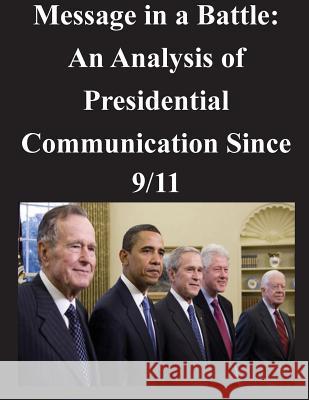Message in a Battle: An Analysis of Presidential Communication Since 9/11 » książka
Message in a Battle: An Analysis of Presidential Communication Since 9/11
ISBN-13: 9781500749781 / Angielski / Miękka / 2014 / 86 str.
The use of public diplomacy is an essential component of counterterrorism efforts but, to date, the United States has not been as effective in its attempts to utilize strategic communication against the threat of violent Islamic extremism as it has been in its utilization of military, intelligence, and law enforcement resources. Based upon the idea that a retrospective analysis of previous presidential speeches could provide guidance for future strategic communications of U.S. government officials, this thesis identifies the nature of the message delivered by U.S. Presidents to foreign audiences since the 9/11 attacks through a qualitative analysis of a purposeful sampling of 50 speeches and statements. The analysis examines the position of the United States government in the ideological debate with violent Islamic extremists to determine whether the United States has taken a largely defensive stance, in which the United States constantly strives to counter the narrative of violent extremist adversaries, or a more forward-leaning posture, in which the United States remains primarily concerned with presenting its own narrative based on its values and ideals. The results of this analysis are then utilized to offer recommendations on modifying the message to better support U.S. efforts to combat violent Islamic extremism.
Zawartość książki może nie spełniać oczekiwań – reklamacje nie obejmują treści, która mogła nie być redakcyjnie ani merytorycznie opracowana.











